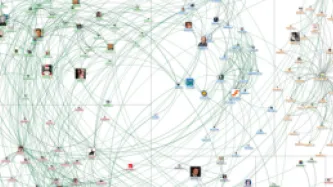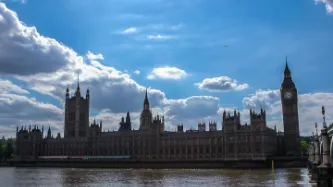Search
Content type: News & Analysis
Just search for the term "surveillance state" and you’ll pull up various uses of the term or news articles citing the phrase.
In some respects, this newfound concern can’t be a surprise; given vast new amounts of information in the public sphere since the Edward Snowden leaks began in June. However, it is critical to nail down the exact meaning of the term, so as the public and governments have the debate over State spying, we can actually know what we're talking about. Most importantly, this…
Content type: News & Analysis
For the first time since the Snowden revelations exposed the vast reach and scope of Britain's surveillance and intelligence activities, Parliament will openly debate the need for greater oversight of the intelligence and security services.
In the five months since the first of the Snowden leaks offered an insight into the government's mass surveillance capabilities, the political discourse has been disappointingly devoid of any serious discussion of the fundamental issues raised about the…
Content type: Press release
Civil society organisations today called upon the members of the Human Rights Council to assess whether national surveillance laws and activities are in line with their international human rights obligations.
The Snowden revelations have confirmed that governments worldwide continue to expand their spying capabilities, at home and abroad. Widespread surveillance is being conducted in violation of individuals’ rights to privacy and free expression, and is seldom regulated by strong legal…
Content type: News & Analysis
The following excerpt is from a posting in the Guardian's Comment is Free by Carly Nyst, Privacy International's Head of International Advocacy.
"In order to challenge a secret surveillance system, and to demand the government explains why it is spying on British citizens, one must apply to a secret tribunal that does not make public its proceedings or the reasons for its decision. It may seem like an Orwellian fantasy, but this is the stark reality of the British legal system.
It's called…
Content type: Press release
In the wake of revelations that the UK Government is accessing wide-ranging intelligence information from the US and is conducting mass surveillance on citizens across the UK, Privacy International today commenced legal action against the Government, charging that the expansive spying regime is seemingly operated outside of the rule of law, lacks any accountability, and is neither necessary nor proportionate.
The claim, filed in the Investigatory Powers Tribunal (IPT), challenges the UK…
Content type: News & Analysis
The current iteration of the UK's "Communications Data Bill" is now dead.
Privacy International has been working closely with others behind the scenes to work on understanding what little case there was, and fundamentally demolishing it.
The UK Government is now examining a "middle way" for the legitimate law enforcement access of communications data. Working with others around the world, we have a few principles that should be considered.…
Content type: News & Analysis
It's not often that you get to witness the birth of a new philosophy. However, according to the UK Home Office, a new philosophy is at the heart of their new Surveillance Camera Code of Practice, published this month, and currently subject to a badly publicized consultation process. The name of this new philosophy? Surveillance by Consent.
An extended version of this piece is available on the No CCTV website.
Of course, the term is not really new, nor is it a philosophy. Rather, it is…
Content type: News & Analysis
Privacy International is proud to announce our new project, Eyes Wide Open, which aims to pry open the Five Eyes arrangement and bring it under the rule of law. Read our Special Report "Eyes Wide Open" and learn more about the project below.
For almost 70 years, a secret post-war alliance of five English-speaking countries has been building a global surveillance infrastructure to “master the internet” and spy on the worlds communications. This arrangement binds together the US, UK, Canada,…
Content type: News & Analysis
A year ago this week, the UK government published a report entitled 'Transparent Government, Not Transparent Citizens', authored by Dr Kieron O’Hara. It made fourteen recommendations, the most important of which seem not to have been implemented. Meanwhile, the government continues to release data on citizens, and is accelerating these disclosures with some ambitious new policies.
This inaction on privacy and open data is particularly worrying given the UK’s leading role in open data and the…
Content type: News & Analysis
Privacy Internationally has submitted two documents to the UK Parliament's Joint Committee reviewing the draft Communications Data Bill. The first submission is an implementation briefing based on our work for the Big Brother Incorporated project, establishing the capabilities and defects of existing surveillance technologies. The second submission focuses on the the majority of the Joint Committee's 21 questions about the social and ethical implications of increased communications…
Content type: News & Analysis
The recent acquisition of Skype by Microsoft, coupled with a series of infrastructural changes, has resulted in a flurry of responses, concerns and analysis of exactly what kind of assistance Skype can provide to law enforcement agencies. Under this heightened scrutiny, Skype released a statement on their blog on 26th July, purporting to re-affirm their commitment to the privacy of their users.
Privacy International are delighted to read that Skype believes that…
Content type: Report
This report was submitted to the Joint Committee on Human Rights. Under the current version of the draft Communications Data Bill, records of every person or entity with whom any given individual has communicated electronically would be collected continuously and stored for one year. These records would include the time of the communication and the location from which it originated.
The Communications Data Bill raises a number of concerns with regards to the right to privacy under Article 8…
Content type: News & Analysis
In the first public admission of its kind, the Home Office's Peter Hill admitted this week that the British government routinely sweeps up the identities of thousands of people in a given area - with a single request to a mobile phone network.
The statement was made during the first hearing of the Joint Committee on the Draft Communications Data Bill, at which Mr Hill (Head of Unit for Pursue Policy and Strategy Unit at the Home Office), Charles Farr (Director of the Office for Security and…
Content type: News & Analysis
Mass surveillance affects us all
The draft Communications Data Bill - known as the 'Snoopers' Charter' - will dramatically expand police surveillance powers if it is voted into law. Innocent citizens would have all their communications and online activity monitored, all of the time. The government would store information about who we're texting, what we're searching for on Google and who we're friends with on Facebook. Police and HM Revenue and Customs officers would be able to access this…
Content type: News & Analysis
On Thursday 19th April, Privacy International - in partnership with the LSE, the Foundation for Information Policy Research, Open Rights Group and Big Brother Watch - hosted Scrambling for Safety 2012, a discussion of the Home Office's new plans for mass interception in the UK. Around 200 people turned up (despite the sporadic but torrential rain!), and the number of insightful, well-informed questions from the audience proved to us that the Home Office is not going to…
Content type: News & Analysis
It is an increasingly common tactic of governments to say very little about a proposed policy, wait for opponents to start speaking publicly about it and then seize gleefully upon any error, accusing their opponents of peddling 'myths'. This allows officials to spend more time talking about what the policy isn't, and less time explaining what the policy actually is.
One recent example of this has been the Home Office's approach to its policy for 'modernising' communications surveillance. …
Content type: News & Analysis
What do we know?
Very little. The Communication Capabilities Development Programme (CCDP) is going to be included the Queen's Speech next month and we still haven't had public confirmation of the details. What we do know is that there have been secret briefings to MPs designed to scare them into compliance, and secret briefings to industry that were originally designed to calm their fears (but in fact have only served to increase their outrage).
What was previously proposed?
In 2009 the Home…
Content type: News & Analysis
For the past 18 months, I've been investigating the export of surveillance technologies from Western countries to despotic regimes, but I never thought I'd see a democratic government proposing to install the kind of mass surveillance system favoured by Al-Assad, Mubarak and Gaddafi. Yet the Home Office's latest plans would allow the authorities unprecedented levels of access to the entire population's phone records, emails, browsing history and activity on social networking sites,…
Content type: News & Analysis
Booz Allen Hamilton, Inc., a prominent defence and intelligence consulting and engineering firm, has been hired as an outside "independent" auditor of the CIA and Treasury Department's Terrorist Finance Tracking Program ("TFTP"), which monitors banking transactions made through the Society for Worldwide Interbank Financial Telecommunication (SWIFT). Though Booz Allen's role is to verify that the access to the SWIFT data is not abused, its relationship with the U.S. Government calls its…
Content type: News & Analysis
The UK Presidency's first formal report, entitled 'Liberty and Security: Striking the Right Balance', was released today. It argues the case for new and expansive policies on communications surveillance, biometrics, travel surveillance, and CCTV. In fact, it promises to take UK policy failures to the European level.
Communications data retention
Despite having only a voluntary framework in UK law, the UK Presidency of the EU is pursuing mandatory data retention in a framework decision…

















